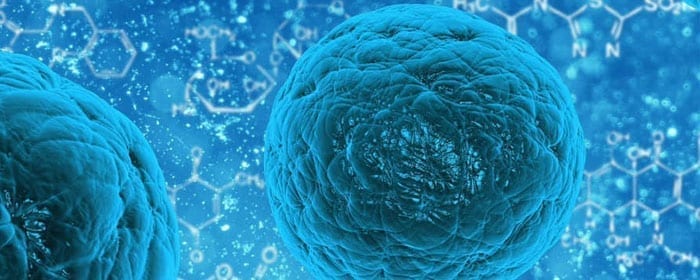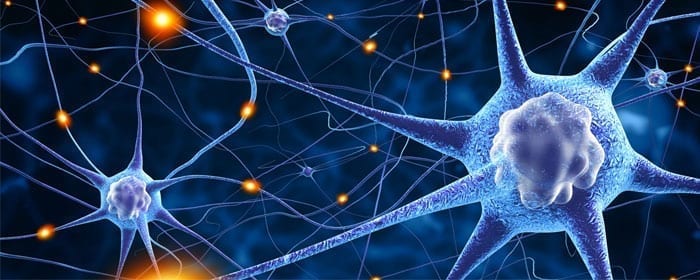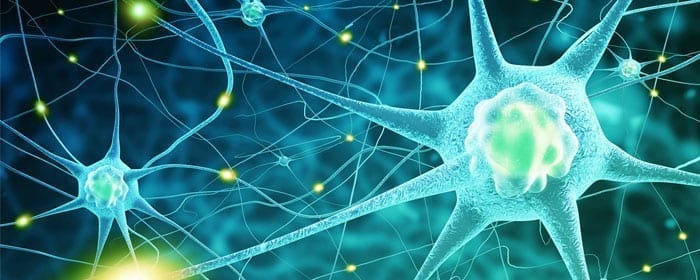
by admin | Jun 1, 2018 | Psoriasis, Stem Cell Research
Psoriasis is a chronic autoimmune disease that affects more than 7 million people in the United States. Psoriasis is well known to cause red, scaly plaques on the skin, mostly on the elbows, hands, and feet—so-called plaque psoriasis. The condition can be very difficult to treat and the treatments can be harsh and cause many side effects. Most people with moderate to severe plaque psoriasis experience considerable suffering as a result.
In a recent clinical experiment, researchers used a man’s own stem cells to successfully treat his plaque psoriasis. Surgeons removed a small amount of fat, similar to liposuction but on a much smaller scale. They then purified the sample and reinjected the adipose-derived stem cells and mesenchymal stem cells intravascularly. One month after receiving the adipose stem cell injection, the patient had substantially fewer psoriasis symptoms. Over that month, his psoriasis severity score went from a “very severe” score of 50.3 to a “none to mild” score of 0.3.
The patient in this study had struggled with psoriasis for over 20 years prior to treatment. He also reported having a poor quality of life over that time. One year after the single injection of stem cells, the patient still had no psoriasis plaques or symptoms and did not experience any serious adverse effects from the stem cell treatment. He was able to stop his other psoriasis medications. During and at the end of the study, the patient told researchers that his quality of life had substantially improved with stem cell infusion, and he was eager to continue treatments.
The results of this clinical experiment are very impressive and is an exciting development for further studies on adipose-derived stem cell research and treatment.

by admin | May 29, 2018 | Stem Cell Research
Despite innovation in healthcare and the progress we’ve made in medical interventions, there are several diseases and disorders for which there are not adequate treatments. Stem cells are becoming a more popular way of addressing these medical challenges that we have not yet overcome and offer a new way to address the biological mechanisms that underlie them. Where traditional pharmacotherapy has not seen successes, stem cells are showing increasing promise.
Mesenchymal stem cells, in particular, are preferred for certain types of these medical conditions because they confer several advantages over other types of stem cells. For instance, mesenchymal stem cells have a great ability to differentiate and develop into a number of different types of adult tissues. Their properties also make mesenchymal stem cells capable of fighting the inflammation that often occurs in these conditions and causes tissue damage. Similarly, mesenchymal stem cells have immunosuppressive effects that can prevent the immune system activity, including inflammation, that can destroy cells and damage tissue.
Many of the medical conditions that mesenchymal stem cells may help with are degenerative diseases such as Parkinson’s disease, osteoarthritis, and stroke. Parkinson’s disease is a neurodegenerative disorder that is chronic and involves motor dysfunction. In this disease, there are underlying problems with the neurotransmitter system, the dopamine system. Stem cells offer a way to overcome the problems associated with dopamine cell loss and dopaminergic dysfunction. Osteoarthritis is also progressively degenerative but affects the joints. In osteoarthritis, the cartilage becomes damaged and destroyed. Strokes can affect a variety of specific tissues, depending on exactly where they occur but are associated with significant tissue damage. The associated functional problems may be able to be addressed with stem cells.
Exosomes are vesicles that are carried within biological fluids like the blood. They carry genetic material called microRNA that can affect the way genes are regulated. There is growing evidence that through their actions, exosomes may be able to enhance the therapeutic effects of mesenchymal stem cells. Further research will help to clarify both what mesenchymal stem cells can do for patients with degenerative diseases and also how they can work in complement with exosomes to achieve meaningful results for these patients.

by admin | May 10, 2018 | Stem Cell Research
A recent review in Biomedicine and Pharmacotherapy has provided a comprehensive view of for how different types of stem cells can be used to treat a variety of neurodegenerative disorders and what the science now tells us about why these particular therapies are showing promise for their ability to help patients suffering from diseases that do not have other effective treatment options.
The review covers 5 main types of stem cells: mesenchymal stem cells, embryonic stem cells, induced pluripotent stem cells, perinatal stem cells, and neural stem cells. Mesenchymal stem cells are adult stem cells that are often found in bone marrow and that can differentiate into a number of different cell types, including bone cells, cartilage cells, muscle cells, and fat cells. Embryonic stem cells, on the other hand, come from human embryos. Given that they come from undifferentiated inner mass cells, these cells are also able to differentiate into a wide array of cell types. Induced pluripotent stem cells derived from skin or blood cells that have been reprogrammed such that they are much like embryonic stem cells.
Perinatal stem cells refer to stem cells that have come from the umbilical cord, the placenta, or the amniotic fluid. While perinatal stem cells also have the potential to differentiate into many cell types, they are often touted as valuable cells because they are taken from tissue that would otherwise be discarded. This process for collecting perinatal stem cells has the benefit of avoiding any ethical concerns that may be raised about the harm or pain inflicted when stem cells are collected by other means. Neural stem cells, unlike the other stem cell types, tend to generate into cells of the nervous system, including neurons and glia.
In addition to the characteristics of these 5 stem cell types and the relative advantages and disadvantages of these cells in regenerative medicine, the authors of this review also cover the implications of cell-based therapies for 4 specific neurodegenerative diseases: Alzheimer’s disease, ALS (Amyotrophic Lateral Sclerosis), Multiple Sclerosis (MS), and Parkinson’s disease. While the research is still relatively new, there is a lot of evidence to suggest that stem cells can help patients with neurodegenerative disease.

by admin | May 7, 2018 | ALS, Stem Cell Research
Stem cells are being increasingly used to create therapies to address diseases across a number of organs. Neurodegenerative disease is one category for which there has been an abundance of research into the potential of stem cells to slow symptom progression or reverse symptoms altogether. For some neurodegenerative diseases, such as Parkinson’s disease, the approach for using stem cells is to create a therapy that enables the cells that are lost through the disease to be replaced by new cells. It is the hope of scientists and clinicians that this type cell replacement therapy will halt aspects of the disease that result from cell loss.
Recently, scientists published experimental results in PLoS One that demonstrate the potential of another type of stem cell approach. More specifically, these researchers showed that in the case of amyotrophic lateral sclerosis (ALS), using stem cells to help create a protective environment for existing cells may have a positive impact on disease progression. The specific type of stem cells used in this experiment was the mesenchymal stem cell.
While cell replacement therapies often employ mesenchymal stem cells because of their ability to differentiate into many different cell types, the researchers in this study used them because of their promise for enhancing the health of a cell environment. Indeed, these cells are known to have immunomodulatory properties and to fight inflammation.
The researchers specifically looked at how mesenchymal stem cells could affect motor neurons and glia because these are the cell types that are implicated in ALS. What they found was that these stem cells were able to reduce apoptosis, a process whereby cells self-destruct as a result of cues in the environment that alert the cells to unhealthy conditions. Critically, the extent to which this type of cell destruction was minimized depended on the amount of mesenchymal stem cell that was present. In other words, with more stem cells came more protection.
Another important observation was that mesenchymal stem cells were associated with the expression of important growth factors that are known to support healthy environments and to reduce markers of inflammation, which tend to be associated with unhealthy environments.
Together, these results suggest that ALS could potentially be addressed with stem cells without the development of aggressive cell replacement therapies. Instead, stem cells could be used to create protective environments for neurons that are normally affected by the disease.

by admin | Apr 24, 2018 | Stem Cell Research
A recent review in the International Journal of Molecular Science has outlined the role that stem cells play in psoriasis. The first clinical trials using stem cells to address psoriasis are currently underway. The idea to use stem cells to treat psoriasis came serendipitously when researchers observed that, when patients with other conditions were treated with stem cells, their skin lesions underwent remission.
The specific stem cells that have proven useful in healing these skin lesions are mesenchymal stem cells and hematopoietic stem cells. However, there is potential for other stem cell types to help with psoriasis as well. Indeed, according to the researchers, psoriasis patients who have undergone bone marrow stem cells transplants have also gone into remission.
A major challenge in treating psoriasis is the complexity of the condition, which involves relationships between skin cells, immune cells, and the vascular endothelium. However, dysfunction of certain stem cells has been identified as a potential contributor to psoriasis and provides theoretical credence to the value of stem cells in a treatment against the condition.
Based on research into the mechanisms by which stem cells may be able to help patients with psoriasis, there are a number of effects of stem cells that are advantageous. For instance, the stem cells impact both cells of the skin, affecting the proliferation and differentiation of those cells, as well as cells of the immune system. The multiple ways that stem cells can affect psoriasis support the view of psoriasis as a multi-system condition.
Given that psoriasis appears to be not only a condition of the skin, but one of the immune system, developing an effective therapy can be challenging. Treatments to help patients with psoriasis would ideally address both the skin symptoms that plague these patients, as well as the underlying physiological processes that lead to the skin condition. Future research will need to address how specific types of stem cells can help those with psoriasis and how these different stem cells impact specific aspects of the condition.






 St. Petersburg, Florida
St. Petersburg, Florida
